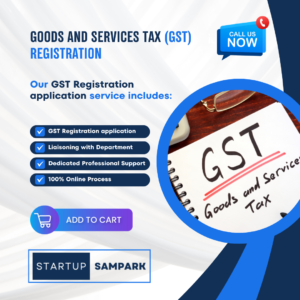Registering for Taxes
Registering for taxes in India is a crucial step for anyone starting a business or operating as a self-employed individual. It ensures compliance with legal requirements and enables you to take advantage of various tax benefits and credits. Here’s a comprehensive overview of the process.
The first step is to determine the type of tax registration you need. In India, businesses and individuals may need to register for various types of taxes, including Goods and Services Tax (GST), Income Tax, and Professional Tax. The specific registrations required depend on the nature and scale of your business.
For GST, which is applicable to most businesses involved in the supply of goods or services, you must first determine whether you are required to register based on your annual turnover. As of recent regulations, businesses with an annual turnover exceeding ₹40 lakhs (₹20 lakhs for special category states) need to register for GST. Registration can be done online through the GST Portal (gst.gov.in). You’ll need to provide details such as your business name, PAN number, business address, and the nature of your business. Once registered, you will receive a GST Identification Number (GSTIN) which is essential for filing GST returns and availing input tax credit.
For Income Tax, businesses and individuals are required to obtain a Permanent Account Number (PAN) from the Income Tax Department. PAN is a unique identification number used for all tax-related activities. You can apply for PAN online through the Income Tax India e-Filing website or the UTIITSL and NSDL portals. The application process involves submitting forms and documents, including proof of identity, address, and date of birth. PAN is required for filing income tax returns, opening bank accounts, and conducting financial transactions.
Additionally, depending on your business type, you may need to register for Professional Tax. This tax is levied by state governments on professions, trades, and employment. Registration and payment procedures vary by state, so you should check with the local state tax department for specific requirements.
For companies or firms, registration with the Ministry of Corporate Affairs (MCA) is also required. This involves obtaining a Corporate Identity Number (CIN) and ensuring compliance with the Companies Act, 2013. The process includes registering your business name, submitting incorporation documents, and obtaining necessary approvals.
Once registered, it’s important to stay compliant with tax regulations. This involves regularly filing tax returns, maintaining accurate financial records, and paying taxes on time. For GST, this means filing monthly or quarterly GST returns, depending on your turnover. For Income Tax, it involves filing annual income tax returns and making advance tax payments if applicable.
In conclusion, registering for taxes in India involves several key steps, including determining the types of taxes applicable to your business, obtaining necessary registration numbers, and ensuring ongoing compliance. By following the registration procedures and maintaining accurate records, you can manage your tax obligations effectively and focus on growing your business.
startup india
-
 MSME Registration₹1,180.00
MSME Registration₹1,180.00 -
 GST Registration₹2,360.00
GST Registration₹2,360.00 -
 Trademark Registration₹7,450.00
Trademark Registration₹7,450.00

















Post Comment